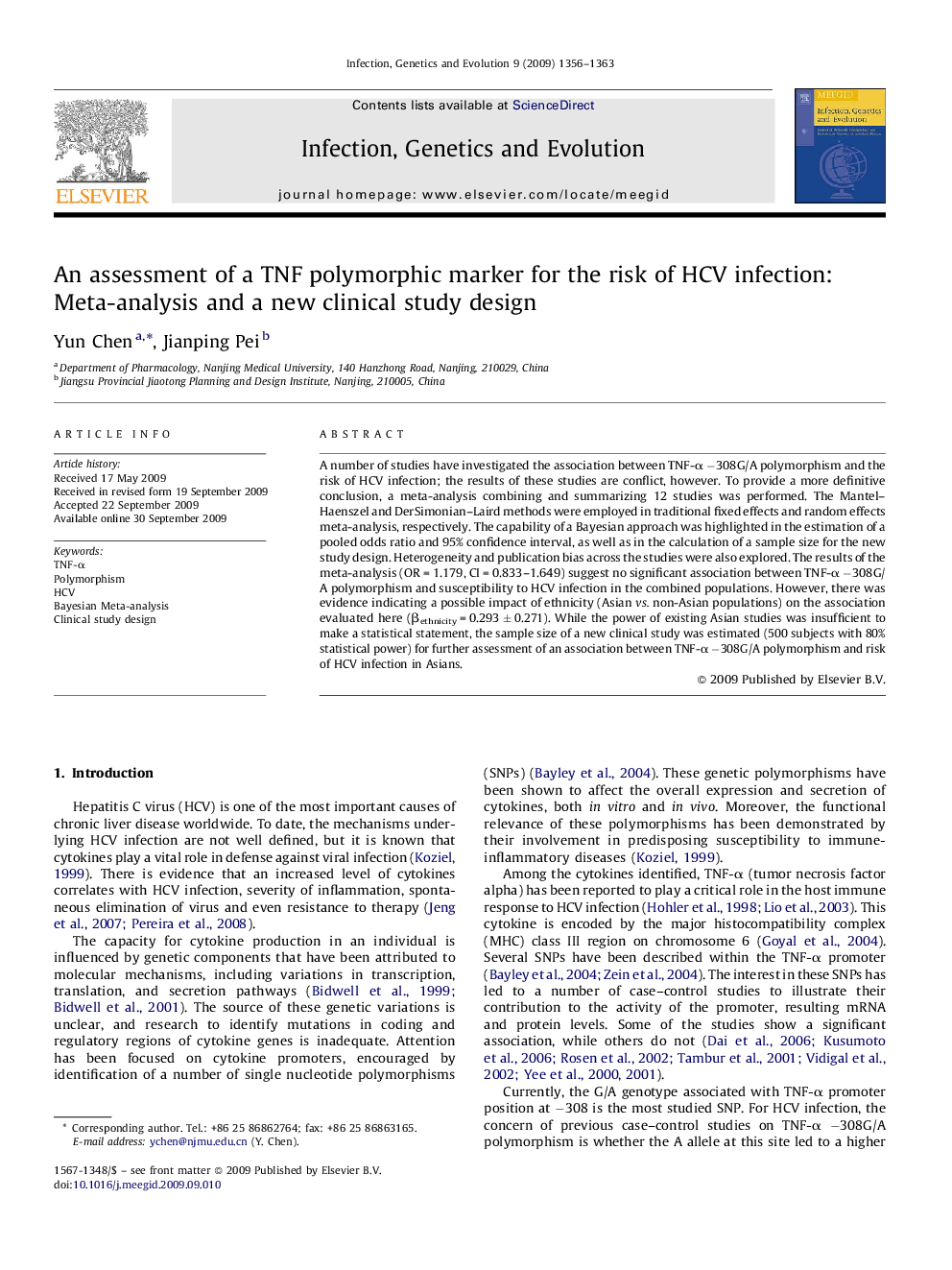| Article ID | Journal | Published Year | Pages | File Type |
|---|---|---|---|---|
| 2823529 | Infection, Genetics and Evolution | 2009 | 8 Pages |
A number of studies have investigated the association between TNF-α −308G/A polymorphism and the risk of HCV infection; the results of these studies are conflict, however. To provide a more definitive conclusion, a meta-analysis combining and summarizing 12 studies was performed. The Mantel–Haenszel and DerSimonian–Laird methods were employed in traditional fixed effects and random effects meta-analysis, respectively. The capability of a Bayesian approach was highlighted in the estimation of a pooled odds ratio and 95% confidence interval, as well as in the calculation of a sample size for the new study design. Heterogeneity and publication bias across the studies were also explored. The results of the meta-analysis (OR = 1.179, CI = 0.833–1.649) suggest no significant association between TNF-α −308G/A polymorphism and susceptibility to HCV infection in the combined populations. However, there was evidence indicating a possible impact of ethnicity (Asian vs. non-Asian populations) on the association evaluated here (βethnicity = 0.293 ± 0.271). While the power of existing Asian studies was insufficient to make a statistical statement, the sample size of a new clinical study was estimated (500 subjects with 80% statistical power) for further assessment of an association between TNF-α −308G/A polymorphism and risk of HCV infection in Asians.
